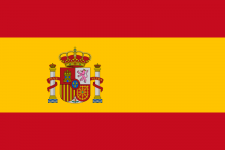
Exclusionary discourses have become prominent in the public and political spheres across European countries in recent years, and Spain is no exception. In response to this, several civil society actors in Spain are working to change narratives and policy and legal frameworks in order to ensure protection of migrants’ rights and to reduce structural inequalities.
For the production of this working paper the BRIDGES project mapped 15 initiatives exemplary in their innovative strategies for spreading inclusive narratives across the country. Two were then selected for further in-depth analysis: Stop Mare Mortum (SMM), a citizen platform launched in 2015 to advocate for safe and legal pathways for migrants to Europe, and RegularizaciónYa (RY), a movement campaigning nationally since 2020 to demand the extraordinary regularisation of undocumented migrants.
Drawing on interviews and desk research, this paper examines data relating to these two initiatives along five key dimensions:
- the nature of the narratives (alternative versus counter-narratives)
- the audience (wider society or sensitised public)
- the composition of the actors involved (natives or migrant people)
- the objective(s) (tackling structural inequalities or aiming for concrete goals)
- the media; political and social impact
The data is then analysed through the lens of the concept of ‘migration narrative success’ (Garcés-Mascareñas and Pastore 2022) with the identification of notable success factors. The main conclusion drawn is that while both initiatives are influential in terms of transformativity for inducing actions like different forms of advocacy and mobilisation, the degree of pervasiveness of the narratives - especially in the media arena - is higher in the case of SMM. The closer position to power structures among the native activists involved with SMM is identified as a relevant explanatory factor in comparison with the non-hegemonic position of the migrant and racialised activists of RY.
The SMM platform has three key aims: to advocate for changes in migration and asylum policy and legislation at the national and European level, to promote the mobilisation of citizens, and to raise awareness among the public of the importance of legal and safe pathways for migrants. Multiple activities are organisted to achieve these objectives, including the distribution of information and collaboration with government officials at the regional and national levels. SMM members have also undertaken an innovative judicial project aimed at holding the government accountable – with success – for not respecting all its legal obligations, most notably relating to art. 38 of Spanish Asylum Law.
RY is a movement led by migrants and racialised people in support of the more than 500 000 undocumented migrants residing in Spain at the time of the COVID-19 pandemic. The movement capitalised on the empathy of native citizens towards migrants in relation to the many challenges they faced daily during that time (e.g. increased screening by the police; being prevented from seeing family members, etc.), as local people experienced similar circumstances under the lockdown regime. The movement advocates for a series of social, political, and economic rights for migrants, with regularisation as the fundamental precondition for their exercise. RY’s main activities involve mobilisation and communication campaigns at the national level, accompanied by awareness-raising activities which focus on the necessity of the regularisation of all undocumented migrants, the development of the antiracist agenda, and the need for (migrant invovlement in the development of) new migration policies.
Details
- Authors
- Berta Güell
- Geographic area
- Spain
- Contributor type
- Academics and experts
- Original source
- Posted by
